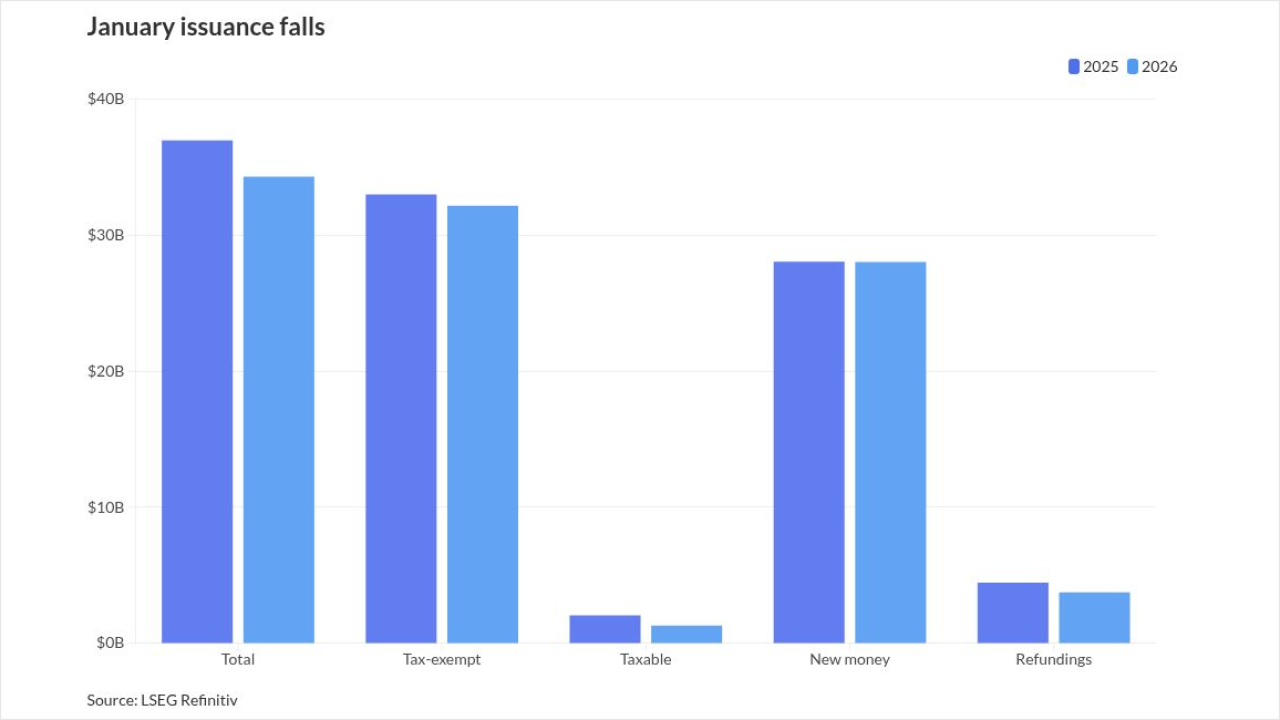The Detroit Charter Review Commission is forging ahead with proposed city charter revisions that Gov. Gretchen Whitmer refused to approve as presented to her and Mayor Mike Duggan warns could trigger a return to Chapter 9.
The commission voted late last week to approve the
Commission members say amendments can still be made before the final document goes to election officials to ensure all changes meet legal standards.

The Duggan administration has
An analysis from Detroit’s chief financial officer warned that the proposed charter changes would cost the city $850 million annually due to spending requirements on infrastructure investments, contracts, transportation, salaries, transportation, and information technology. The city argued the mandates would violate state budget rules and its bankruptcy exit confirmation plan, driving a multi-billion dollar budget hole over the several years.
A legal review from Michigan Attorney General Dana Nessel raised a series of concerns about the legality of some provisions and financial impact, prompting Whitmer’s rejection.
“The Department of Attorney General has determined that the current draft has substantial and extensive legal deficiencies. Given these defects…I cannot approve the Proposed 2021 Revised Charter at this time. Moreover, the revised charter includes several provisions that will require close study by the Detroit Financial Review Commission,” Whitmer wrote in an
The charter commission can proceed with the ballot measure without the governor’s approval or can modify the proposal to address concerns and submit it for a second review, according to the attorney general's review that notes that latter has been the customary practice but is not required.
The commission’s timeline always envisioned a vote on the final draft revisions in June along with a campaign to educate voters.
But city lawyers told council members recently that the state law doesn’t allow for the adoption of charter changes not approved by the governor, raising questions over whether the city would sue to try to block a vote or sue after election-day if voters approve the charter.
The attorney general's review underscores the uncertainty ahead and the potential that some provisions could run afoul of the city’s bankruptcy plan of adjustment and prompt a fiscal crisis.
“If the proposed revisions cause a financial crisis, the FRC could then revoke the city of Detroit’s and the Detroit Public School Community District’s waiver, requiring the FRC to regain full oversight over the city’s and school district’s finances. A financial crisis could have adverse consequences for residents, businesses, and persons who receive a pension from the city,” the review said.
In reviewing potential conflicts with the restructuring plan, the AG review considered the proposed charter's limits on the ability to reduce pensions for city employees, increased spending required by the city without a commensurate increase in revenue; and changes to city’s participation in a regional water authority built into the revised charter.
Some pension proposals may be “impracticable” because pension rates are not fully under city control, and the new rules on city water and sewer operations would conflict with its contracts with the regional authority implemented as part of its bankruptcy exit plan.
The AG review concluded that there’s no conflict on city spending mandated by the proposed revisions, but said that to the extent the new spending creates a deficit for the city, it could trigger stricter control of the city’s finances by the Detroit Financial Review Commission.
The DFRC held direct control over city finances until 2018 when it waived day-to-day control after the city met targets such as maintaining budgetary balance. The current one-year waiver expires June 30 and it’s conditioned on the city maintaining good fiscal health. It can be rescinded if financial distress is detected.
“If so, the revisions likely would trigger the FRC to revoke Detroit’s waiver and regain strict control over the City’s finances,” the AG report noted.
Many of the revisions would be void if the city returned to bankruptcy court. “This is significant because Detroit’s CFO predicted that the proposed revisions would trigger another Chapter 9 proceeding for the city,” the AG report read.
The charter commission decided to “accept” the governor’s letter and voted to move forward with the ballot question at a special May 6 meeting ahead of a May 11 deadline.
The commission defends its proposed changes as needed to provide equity in the city’s ongoing post-bankruptcy and COVID-19 pandemic recovery and said that the Duggan administration has exaggerated the costs and not all changes are mandated.
“You will find that the revised charter speaks to many of the most important and lingering issues that have plagued our city and country since their founding and at the same time creates a foundation for a reimagined city whose self-sustaining and vibrant growth, when fully integrated into the fabric of southeast Michigan and the state of Michigan, will be a national model of resurgence and sustainability,” Weaver wrote to Whitmer in the letter submitting the charter revisions for review.
The charter commission is awaiting its own independent assessment on the costs from a Michigan State University professor. The nine-member
The Duggan administration and charter commission have also traded barbs on the city’s participation in the process and funding for the referendum.
“I’m happy to work with the charter commission…but they have to be responsible in following the law and getting us a financially solvent charter,” Duggan said at a recent news conference. “What I’m not going to do is sit down and be quiet while they adopt something that pledges the city back into bankruptcy. We’ve come too far.”

In a worst-case scenario if the city returns to Chapter 9, few assets are left, Duggan has warned.
“I would say that this charter as proposed is a dire threat to the pension of every city of Detroit retiree,” Duggan said. “There’s no art left. That gotten taken off the table. There’s no swap bonds to cancel. That’s been taken off the table. If the city of Detroit is back in bankruptcy the only asset left is the pension fund.”
Detroit shed $7 billion of debt with bondholders taking steep haircuts. Pension benefits were cut in the restructuring but the cuts were limited as part of the so-called "Grand Bargain" with a philanthropic consortium donating funds to limit cuts and avert the possibility that assets of the city-owned Detroit Art Institute museum would be sold.
The charter was last revised in 2012. It establishes the ground rules for government operations, details the roles of the executive and legislative branch, enables the election process and mandates the departments, programs and services the city must provide.
The city is grappling with a weaker budget picture for the current year and lingering pandemic impacts expected until 2024, according to revised revenue estimates approved at the city’s annual February Revenue Estimating Conference.
The strains will be eased by $880 million in direct federal relief from the American Rescue Plan. A working group is considering recommendations on how to spend the funds.
Duggan previously said he intends to reverse layoffs previously ordered to manage pandemic tax blows. The city collected about $400 million less revenue in the last and current fiscal years due to the pandemic and expects $100 million less in fiscal 2022.
The Detroit City Council last month adopted a $1.1 billion general fund budget for the fiscal year that begins July 1. It funds a police raise and returns $50 million to the city’s rainy day fund that had been withdrawn to deal with pandemic-driven gaps. It also funds a $30 million supplemental deposit into a special account being built up to deal with the looming resumption of pension contributions.
The city has won a series of upgrades since emerging from Chapter 9 but its ratings remain speculative-grade. Ahead of a recent $175 million general obligation sale for blight removal, S&P returned the outlook on its BB-minus rating to stable from negative.





